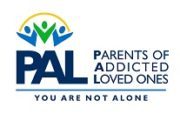“They knew they were pilgrims… so they committed themselves to the will of God and resolved to proceed.” -William Bradford Occasionally someone will ask me, “How long do you think you’ll need to attend/facilitate a PAL meeting?” After eight years it is probably a reasonable thing to wonder. Having spent some time thinking about this, I have come to the conclusion that the main reason I press on as a facilitator is twofold. First, I feel that PAL saved my life and I must pay that forward somehow. Second, I cannot describe in adequate detail the joy it brings to my heart to see parents get better. I’d like to outline for you what I see people consistently do as they recover from the codependency that accompanies being the parent of an adult child using substances. At the beginning of my own journey to recovery I was at a place in life that could best be described as a deep pit of despair. Actually, a “living hell” was how I described it to friends and family back then. My husband and I had no social life. We stayed home to avoid running into anyone that might ask about our sons. We stopped attending church. We ate too much and drank too much. We stopped exercising. We stopped going on vacation. We kept our fists closed tight and refused to open them for help for fear that someone might “find out” that both of our sons were drug addicts. Little did we know how God would, once again, turn something meant for evil into good. As the quote above states, “they committed themselves to the will of God and resolved to proceed.” This is a necessary step for parents as they begin their journey to healing. Committing the situation over to the will of God and then proceeding to ask for help is crucial. Once it is understood that there is a curriculum to addiction and recovery, hope begins to gain a foot hold in the hearts of parents. This is one of the first things that happened for us and what I see in people that attend our PAL meetings. The next thing necessary is a willingness to learn and grow and work on personal issues rather than attempting to continue to “fix” their sons and daughters. One of those issues is an inability to treat their adult children as the adults that they truly are. Parents who get better begin to recognize their child’s adulthood. They speak to them with respect, they convey a message with their words that says, I believe in you rather than questioning them constantly and telling them what they “need” or “should” do next. I also see parents start taking care of themselves, spiritually and physically. They attend their PAL meetings regularly; they establish boundaries with their adult child regarding what is “ok” and “not ok” with them. They attend church. Many begin working with a counselor who specializes in addiction and family issues. They exercise. They go on vacation. They smile more. In a nutshell, they develop their own program that is concrete, practical, focused and consistent. As a result, joy begins to seep back into their lives as they take the spotlight off their child and focus it directly on themselves. It’s important for us as parents to remember that we will always be a role model to our children even as they become adults. Why not set an example as to how great life can be in spite of the difficult circumstances that will inevitably creep into our lives? Blessings, Janice PAL Parent / Facilitator


Comments are closed.